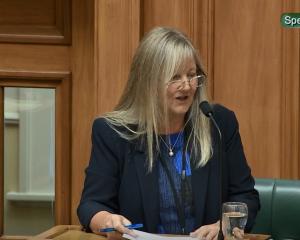
A Herald-DigiPoll survey shows support for the policy, which is Labour's primary weapon against rising house prices, is particularly strong in Auckland, where first-home buyers have borne the brunt of those increases.
The poll of 750 New Zealanders this month found almost 41 per cent of respondents were strongly or moderately in favour of the tax.
That is up from just under 38 per cent in July 2011, and more than 10 percentage points higher than the number of respondents planning to vote Labour in September.
In Auckland, 45 per cent of respondents backed the policy.
Throughout New Zealand, the number strongly or moderately opposed went from 37 per cent in July 2011 to just under 35 per cent.
Labour's finance spokesman, David Parker, said the swing in favour of the policy was significant.
"Voters better understand that a capital gains tax is fairer and makes the economy stronger by directing capital away from housing speculation and into productive investment and higher paid jobs."
He said better understanding came partly from "the linkages people are seeing across housing and the rest of the economy" and Labour's own efforts to promote the tax and the issues it sought to address.
In Parliament yesterday, Associate Finance Minister Jonathan Coleman said Labour's proposal was "full of complexities and exemptions".
Labour's plan for the tax is largely the same as it put before voters in 2011 with the exception that an exemption for quake-damaged Canterbury homes has been removed.
The 15 per cent tax on any gains between the tax being implemented and the sale of assets would not apply to the family home.
The tax would apply to the sale of farms, but gains in the value of the vendor's family home on the farm would be excluded.
The tax would not apply to assets held for personal use or as collectibles, or the first $200,000 gain on a small business sold at retirement.
- Adam Bennett of the New Zealand Herald












